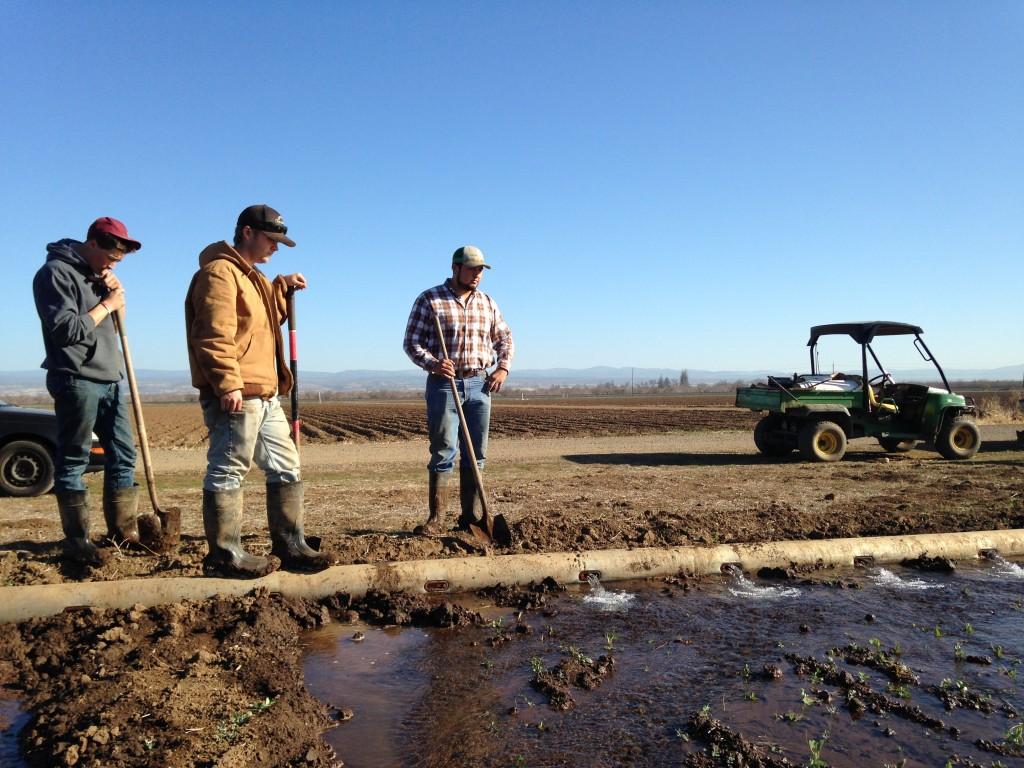
University Farm students and staff are combating the drought this season by digging up the farm’s groundwater earlier than expected to replenish the land.
January typically brings in three inches of rain, however, the statewide average precipitation this year was just 0.10 inches, according to the National Weather Service.
“Even though the trees are dormant, you have to keep irrigating them to keep the water table up,” said Jeff Boles, staff member at the Chico State Agricultural Teaching and Research Center. “When the trees start using the water, you won’t be able to put enough water in the ground to catch up so you have to water them just like it’s raining.”
Normally the groundwater, which restocks each year during the rainy periods, is used for irrigation to moisten soil in drier seasons like summer. But because of the lack of rain this winter, the farm has had to pump that groundwater to keep the land green.
On Jan. 17, Gov. Jerry Brown declared a drought emergency in California, urging people to reduce water usage by 20 percent.
The declaration called for federal support for farmers, who remain the largest users of water, and also had provisions for water transfer from certain regions of the state to others in order to alleviate water shortage.
“As a northern California farmer, I would like to see the water stay here,” Boles said. “Because it takes our groundwater being pumped and water is being diverted to go down south and I’m not a big fan of that.”
Boles has been working with six students on irrigating the orchards at the University Farm during winter break. There are about 200 acres of trees, 350 acres of row crops, 250 acres of pasture, and nine wells that pump water from aquifers onto the land.
On the field, the students direct water flow from the pipe by sticking flat plastic boards into the earth to divert running water towards the middle rows of the field.
“People don’t care about conserving water because in some places you don’t even have to pay for it,” said Chris Putz, senior agricultural business major. “People won’t realize how important water is until the state starts mandating water usage.”
Putz recommended that students take shorter showers and turn off the faucet when they don’t need to use water. He said he didn’t like the idea of people having lawns and bodies of water on golf courses.
Shortage of water also means higher prices for meat, said senior agriculture major Johnny Margaretich. When there’s a water shortage, farmers will try to sell as much cattle as they can but keep a small herd — that small herd will later cost buyers even more money.
Due to the drought, the university is having to spend more on the land and livestock, Boles said. Electricity is required to pump water from the wells and because there is no moisture in the grass for livestock to graze, hay is supplemented as feed.
The farm is switching to less water intensive crops like sunflowers and vine seeds, and planting half as much corn, Boles said. Sunflowers and vine seeds are irrigated every three to four weeks, whereas corn requires it every seven to 10 days.
The drought may last through the next three months, according to predictions by the National Weather Service. It’s believed that a high-pressure ridge in the atmosphere is sitting off the west coast diverting storms that would normally bring rain to northern California.
Christine Lee can be reached at [email protected] or @leechris017 on Twitter.








